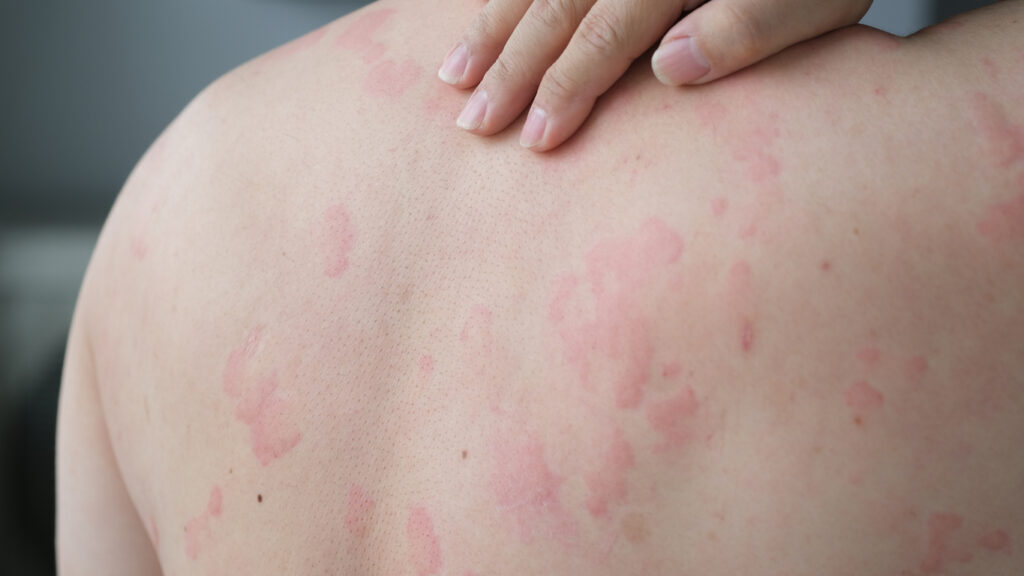Barzolvolimab demonstrates rapid improvement in urticaria control with sustained efficacy in patients with chronic spontaneous urticaria (CSU) who are refractory to antihistamines, according to Phase 2 research presented at the American College of Allergy, Asthma & Immunology’s Annual Scientific Meeting (ACAAI) in Orlando, FL.
Celldex’s barzolvolimab is a humanized monoclonal antibody that targets KIT, directly inhibiting mast cell function and survival.
Patients showed significant improvements in urticaria control test scores over seven days (7-day Urticaria Control Test, or UCT7). Specifically, patients on barzolvolimab experienced up to an 8.6-point improvement from baseline UCT7 scores compared to only 2.5 points for placebo at Week 12, the researchers report.
This improvement deepened for patients on barzolvolimab to up 10.0 points at Week 52. At Week 52, 71% of patients achieved complete disease control (UCT7 = 16), and 86% of patients achieved well-controlled disease (UCT7 > 12) with 150mg given every four weeks.
Barzolvolimab also demonstrated rapid and profound complete response rates (Urticaria Activity Score = 0) in up to 51% of patients at 12 weeks, which continued to deepen over 52 weeks of active therapy to affect up to 71% of patients.
Seven months after completion of dosing, patients continued to experience benefit, with up to 41% of patients reporting a complete response at 76 weeks and 48% of patients reporting that their disease no longer impacted their quality of life, the study showed.
The drug showed similar activity in both omalizumab-naïve and omalizumab-refractory CSU patients.
Barzolvolimab was well-tolerated with no new safety findings during the follow-up period.
Next Steps
The Company is currently enrolling patients in a global Phase 3 Program for barzolvolimab in CSU, consisting of two Phase 3 trials (EMBARQ-CSU1; NCT06445023 and EMBARQ-CSU2; NCT06455202) designed to establish the efficacy and safety of barzolvolimab in adult patients with CSU who remain symptomatic despite H1 antihistamine treatment. The studies also include patients who remain symptomatic after treatment with biologics.


